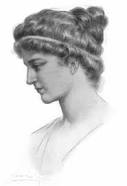 Vă invit să vă alăturaţi grupului Facebook Mişcarea DACIA, ce-şi propune un alt fel de a face politică!
Vă invit să vă alăturaţi grupului Facebook Mişcarea DACIA, ce-şi propune un alt fel de a face politică!Citiţi partea introductivă şi proiectul de Program, iar dacă vă place, veniţi cu noi !
O puteţi face clicând alături imaginea, sau acest link
Posts Tagged ‘Theophilus’
Hyperian History Of The World (5th Century)
Giugno 20th, 2019 No Comments Posted in Mişcarea Dacia
Brice Merci – Hyperian:
Hyperian History Of The World (5th Century)
„At the end of the 4th Century the era of antiquity was drawing to a close. Christianity, the new religion, was sweeping across the Roman Empire and beyond, whilst philosophy and paganism were being pushed more and more underground. In 393 the oracle at Delphi made its last recorded statement saying simply, “all is ended”, before the temple was closed for good.
Yet as the 5th Century began, Alexandria was still a centre of Paganism and philosophy. Neoplatonism was being kept alive in a school called the Mouseion headed by a mathematician called Theon. Theon had returned Neoplatonism to what he considered a purer form, more true to the original conceptions of Plotinus.
Theon was succeeded by his daughter Hypatia, one of the most remarkable women in history. As head of the philosophical school in Alexandria, she would walk the streets of the town lecturing on Greek philosophy and students from all over the Mediterranean would travel to Alexandria to learn from her.
Despite the pagan nature of Neoplatonism, the vast majority of Hypatia’s students in Alexandria were Christians, given the rise and spread of that new religion, yet Hypatia was tolerant of Christians, especially if they sought to learn philosophy from her. Hypatia was renowned as a great mathematician and astronomer as well as philosopher. She was also said to have been exceedingly beautiful and many men attempted to court her, although it is said she remained a virgin for her whole life.
At the start of the 5th century, the Christian bishop of Alexandria was Theophilus, who had been greatly opposed to the older form of Neoplatonism in Alexandria. However, Theophilus was very tolerant of Hypatia and her school and even regarded her as an ally, which allowed her to foster good relations with prominent Roman political leaders and also led to her great popularity in Alexandria.
In 412 Theophilus died and was succeeded by his nephew Cyril who began a ruthless campaign against those who hadn’t supported him. Hypatia and her school immediately took a strong distrust towards the new bishop. Cyril’s ruthlessness continued with his expulsion of all jews from Alexandria in 414, an action which outraged the prefect of Alexandria, named Orestes, who was newly converted to Christianity. This began a great feud between Cyril and Orestes and Orestes regularly consulted Hypatia for advice, which turned Cyril against her. Focusing on her paganism, Cyril began a great smear campaign against Hypatia, accusing her of satanic practices and of being a danger to Christianity.
This all culminated in 415 when a violent mob of Christians ambushed Hypatia in her carriage as she travelled through the city. They dragged her into the Kaisarion, a former pagan temple which had been converted into a Christian church. There, they stripped her naked and murdered her, supposedly by scraping off her skin with oyster shells. They tore her body into pieces which were taken out into the city and set on fire.
The motivation for Hypatia’s brutal murder is not clear. It may have been simply the Christian response to her paganism, an attitude which had been aggravated by Cyril, or it may have been politically motivated, as Hypatia was seen as an obstacle in the way of reconciliation between Cyril and Orestes. It is also unclear as to how involved Cyril was with the murder and whether or not he had ordered it. Either way, Hypatia’s murder by a violent mob of zealous Christians reveals the true face of that religion, which hides behind a facade of peacefulness.
Hypatia’s death was said to have sent shockwaves throughout the empire, yet it was a powerful symbol of what was happening in the world at the time, namely the end of the era of antiquity, of paganism, philosophy and the glory of ancient Greece, and the rise of the violent and oppressive religion of Christianity, bringing the world into an era of ignorance and superstition.
Hypatia remains a powerful symbol of what the new world needs and of what the old world fears, a strong-willed, brilliantly intelligent woman who rose to a position of great prominence, inspiring and educating all who came into contact with her. She is a great martyr of intellectualism, of paganism and of feminism, and is an inspiration to all Hyperians today.












